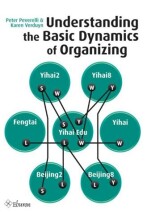Additional literature
16 important questions on Additional literature
What are normative judgments?
On what is a moral judgment based?
Thus, a moral judgment has to be based on moral standards. What happens if I have identified my moral standard?
- Higher grades + faster learning
- Never study anything twice
- 100% sure, 100% understanding
Ethics is dealing with questions about good and evil, what's business ethics about?
Describe the 3 ethical bases on which we can judge actions?
The 3 mainstreams mentioned above play an important role in ethical discussions. Describe which streams are discussed and what belongs to what:
In short: Utilitarianism = a decision is considered right when the consequences will cause more happiness (greatest happiness for the biggest group). Name the 4 problems with this: (misi)
Liberalism: The theory of Rawls (theory of justice) is based on the contract theory introduced by Locke: a virtual contract, in reality nobody had signed it, but it still has power over citizens). In which way used Rawls the contract theory?
Rawls (liberalism) identified that the distribution of basic rights should be equal: everybody should have to same right to freedom of religion, opinion etc. This principle should have priority over attempts to maximize our welfare. Which principle did Rawl introduce to accept some inequalities?
Deontologists: ask what the intention of the action is. Our juridical system is more or less based on deontology/based on Kantian ethics. Which two imperatives distinguishes Kant?
The categorical imperative of Kant is unconditional/universal. Reason is the source of my categorical imperative. Explain two characteristics:
Kant: freedom means that I will decide what is going to happen. If reason determines my will, than the will becomes the power to choose, If I didn't choose my desires freely, how can I think as myself as free when I am pursuing my desires? Autonomy and heteronomy play an important role. Explain:
Marx' ideas where the opposite of the utilitarians, why?
Marx distinguished the economic substructure and the social superstructure. Explain those structures:
According to Marx, during the industrialization the workers are forced to produce massive amounts of goods. This process will lead to 3 tendencies of immiseration. Which 3? (pmc)
Virtue ethics started with Aristotle and still is growing in importance. Explain the meaning of norms, values and virtues:
The question on the page originate from the summary of the following study material:
- A unique study and practice tool
- Never study anything twice again
- Get the grades you hope for
- 100% sure, 100% understanding































